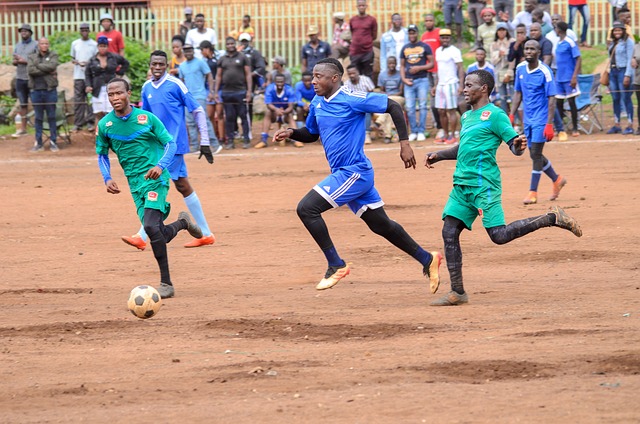
African Soccer Players in Europe: Qualifications and Requirements
African soccer players have made a significant impact on the European professional football scene, with many top clubs fielding talented and successful players from the continent. From Didier Drogba of Côte d’Ivoire, Samuel Eto’o of Cameroun, Michael Essien of Ghana, Yaya Toure of Côte d’Ivoire, to Sadio Mane of Senegal and Mohammed Salah of Egypt, African players have proven time and again that they have what it takes to excel in Europe’s top leagues. However, becoming a professional player in Europe, and for that matter playing football abroad, is no easy feat, as there are several qualifications and requirements that must be met.
First and foremost, African soccer players must possess exceptional talent and skill on the field. This includes technical ability, tactical understanding, physical fitness, and mental toughness. They must also be able to adapt to the different playing styles and cultures of European football. It is not enough to be a great player in Africa to succeed in Europe, players must be able to play at a high level consistently and adapt to different tactical systems and playing styles.
Apart from the on-field qualifications, African soccer players must also meet certain off-field requirements. For example, they must have a valid passport and be able to obtain a work permit, which can be a complex and time-consuming process. The work permit process varies from country to country, but in most cases, it requires that the player has played a certain number of international games for their national team or that the club for which they are signing is willing to pay a substantial transfer fee for the player. They must also have the necessary paperwork and documentation, such as a birth certificate and proof of citizenship.
Another key requirement for African soccer players looking to play in Europe is obtaining international clearance from FIFA. This involves obtaining a clearance certificate from the player’s national association, which verifies that the player is free to transfer to a new club. The process can take several weeks or even months to complete, and any delays can prevent a player from joining a new club. This clearance process is important as it ensures that the player is not under contract with another team, and that all transfer fee has been paid in full.
African soccer players must also meet certain age requirements. In general, players must be at least 18 years old to play professional football in Europe, although some exceptions may apply. They must also be registered with the appropriate national or international soccer governing bodies. This is to ensure that the player is eligible to play in the league and that they meet the necessary health and safety requirements.
Depending on the destination, African players must also consider potential language barrier challenges. European countries have different languages and cultures, and it’s essential that players are able to communicate effectively with their teammates and coaches. This can be challenging for players coming from Africa, where English may not be widely spoken. It’s essential that players take the time to learn the language and culture of the country they will be playing in, to make the transition as smooth as possible.
Finally, African soccer players must be prepared to work hard and make sacrifices to achieve their goal of playing professional football in Europe. This may include leaving their families and friends behind, as well as dealing with the pressure and expectations of playing at the highest level. The demands of professional football are intense and can take a toll on players both physically and mentally, and it’s essential that players are prepared for this.
In summary, becoming a professional soccer player in Europe is a challenging and demanding process, but African players who have the talent, work ethic, and determination can succeed. The qualifications and requirements for African soccer players to play professional football in Europe include exceptional on-field talent, valid passport, work permit, international clearance, appropriate age, and registration with national or international governing bodies. Additionally, they must be prepared to make sacrifices and adapt to different cultures and playing styles.


